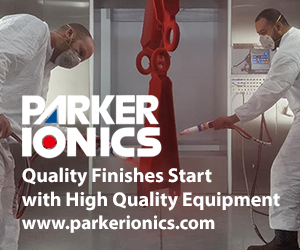What’s Trending in Manufacturing?
A look at trends in process improvement, purchasing and technology as we head into the new year.
I love the optimism that comes with the dawn of a new year. 2013, along with its good and not so good, wins, losses, heartaches and victories, is behind us as we look to what it will take to make 2014 a great 365 days. As we bury ourselves in the daily work of leading people, answering emails, supporting customers, holding staff meetings, addressing quality problems and the like, it will be easy to look past the fact that we live in amazing times. Moore’s Law is alive and well. Products are still doubling in price performance every twelve months. The technology at which we marvel today will have gone the way of the brick phone five years from now. What then will the next five years hold for manufacturers and those in the coatings industry that serve them?
The sales and marketing teams of six leading manufacturing companies were recently assembled to debate that very question. This diverse group included members from Engel Tool and Forge Co., Molded Dimensions, a custom rubber and polyurethane molding and engineering operation; Heresite Protective Coatings, an industrial coating and lining systems company; Dyne Systems, manufacturer of power train test systems for a variety of industries; precision machining company A.S. Pindel Corp. and American Finishing Resources, provider of coatings removal services and engineered paint fixtures.
Attacking the question from a primarily sales and marketing perspective, four sub-groups formulated their own predictions around how the world of manufacturing will change in the coming half decade. What’s trending in manufacturing; how will the manufacturing world change in the next five years; and what should we be doing about it? Trends in three key areas: process improvement, purchasing and technology were identified, as follows:
Process Improvement Trends
Manufacturers will look to suppliers to be the experts in improving manufacturing processes. Suppliers will be increasingly relied upon to have "boots on the ground" and assist customers in meeting their goals. Participation in and even the ability to facilitate customer continuous improvement events will be key.
Manufacturers will continue their focus on lean and continuous improvement. They will continually reduce order sizes as economic order quantities push toward single units. Suppliers must consider options to help customers achieve this goal, including single piece flow, warehousing closer to the customer, and vendor managed inventory. Suppliers will be expected to service customers with speed and like-minded thinking.
Manufacturers will continue to move toward paperless business practices. Suppliers that are not looking in the right places will run the risk of missing important information or overlooking customer purchase orders entirely. They therefore need to integrate their information systems with those of the customer.
Automation and robotics will continue to be adopted into manufacturing processes. Manufacturers will require suppliers who are educated and conversant in the areas of automation and robotics and in how the supplier’s products or services align with an automated production process. Suppliers will need to understand automation, build a team of talented people and educate them in these areas.
Purchasing Trends
Manufacturers will become better at understanding "total cost of ownership." They will populate their purchasing teams with smarter people and those who understand the entire supply chain. Suppliers will need intelligent people of their own to interact and respond.
Payment terms will become longer. Manufacturers will be expected to lengthen payment terms or find other ways to respond to these requests. They must devise strategies to negotiate or respond to customer requests and take advantage of the lower cost of capital with creative customer solutions.
Responsibilities of purchasing teams and buyers will be consolidated, and their people will be asked to do more with less. Thus, the burden will be on suppliers to make the customer’s work easier, do the customer's work for them and make the buyer look good.
Purchasing professionals will continue efforts to commoditize suppliers who will in turn need to focus on educating customers and building relationships with purchasing professionals while stressing value over price.
Purchasing functions will become more centralized (i.e. one corporate purchasing person for several plants). There will multiple decision makers at multiple levels in multiple facilities for each buy decision. Suppliers will need to clearly understand and balance the expectations of all customer stakeholders and ensure effective communication with each of them.
Technology Trends
Design and project teams will collaborate virtually, sharing information in real time. Lead times for design and project management will be reduced through the use of cloud-based technology, which will thereby reduce travel time wait time and cost associated with geographical separation.
3D printing will change entire business models and manufacturers will insist on suppliers that can utilize 3D printing technology. This will speed up new product development, testing and validation.
Advancements in mobile technology will lead to an environment where parts and orders will automatically scan to inventory systems and this information will no longer be tracked manually. Suppliers who provide apps to customers to be used in the RFQ, quoting and ordering processes will benefit.
Manufacturing has seen significant change in the last decade and along with this change has come new ways that finishers run their operations. This rate of change will continue. Manufacturing and finishing processes will transform with lighting speed. Purchasing processes will become more precise and sophisticated. The continued rapid rate of technological change will revolutionize entire industries. The coming five years hold promise for those finishers who can keep up or better yet, anticipate and stay ahead of the curve. Will you?
To learn more visit American Finishing Resources.
Related Content
Finishing Another Year — Looking Back at the Trends of 2023
Products Finishing reflects on a year of reporting on the surface finishing industry and looks ahead to what may be in store for 2024.
Read MoreSparktek Acquires Marca Coating Technologies
Two of North America's vacuum metallizing companies are coming together to provide domestic, high-volume vacuum metallizing services to multiple industries.
Read MoreAn Altruistic Growth Strategy Puts People First
Professional Plating emphasizes investing in its team and fostering a supportive environment on the shop floor.
Read MoreAttentive Employees Support Large Customer Base
As a Products Finishing Top Shop, this company’s success with offering a variety of finishing services would not be possible without its employee dedication and the pride that’s been instilled in them to produce quality products for its long list of customers.
Read MoreRead Next
Education Bringing Cleaning to Machining
Debuting new speakers and cleaning technology content during this half-day workshop co-located with IMTS 2024.
Read MoreMasking Solutions for Medical Applications
According to Custom Fabricating and Supplies, a cleanroom is ideal for converting, die cutting, laminating, slitting, packaging and assembly of medical-grade products.
Read MoreA ‘Clean’ Agenda Offers Unique Presentations in Chicago
The 2024 Parts Cleaning Conference, co-located with the International Manufacturing Technology Show, includes presentations by several speakers who are new to the conference and topics that have not been covered in past editions of this event.
Read More














.jpg;maxWidth=300;quality=90)







